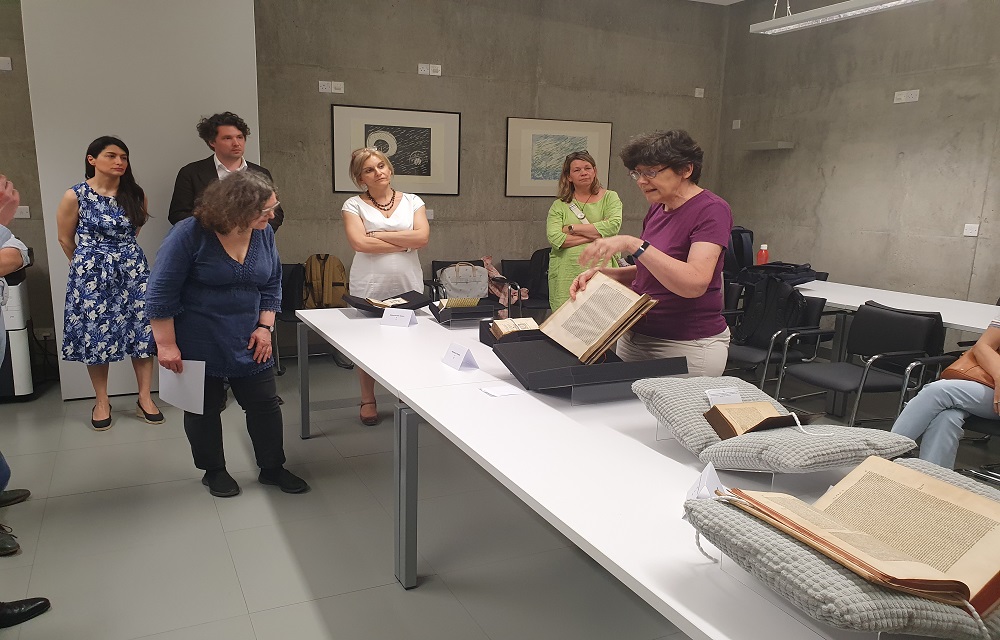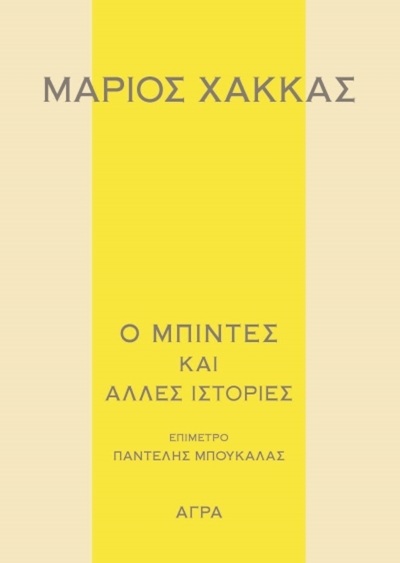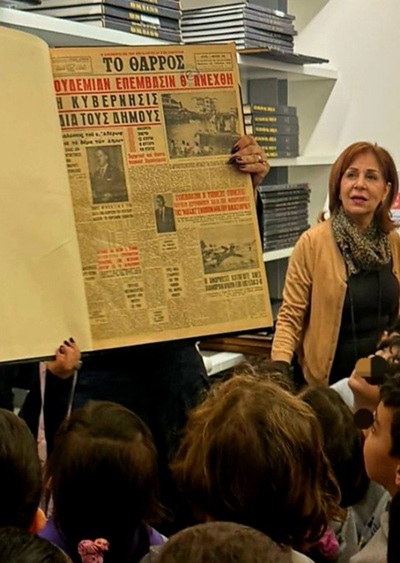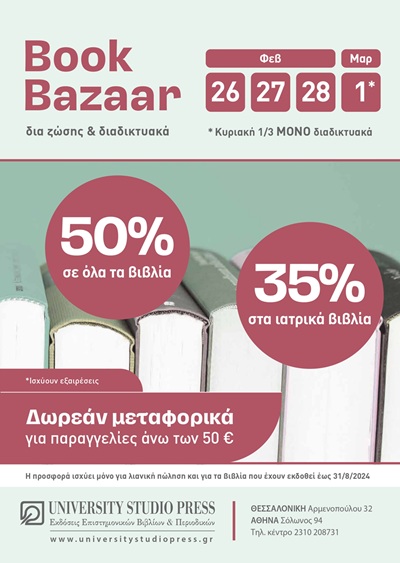
On June 1-2, 2023, a two-day research conference entitled “Greek Books and European Common Identity, 15th-17th century” was held at the University of Cyprus, within the framework of the GrECI (Greek Heritage in European Culture and Identity) program. It is a Twinning program (HORIZON-WIDERA-2021 ACCESS) and is a collaboration between three universities (University of Cyprus, University of Oslo in Norway and University of Franche-Comté in France), coordinated by the University of Cyprus (Assoc. Prof. Natassa Konstantinidou, Department of History and Archeology ) and aims to investigate the reception and appropriation of Ancient Greek culture by Western scholars in Europe during the Early Modern period (15th-17th centuries).
Prof. Julián Solana Pujalte (Universidad de Córdoba) and Inmaculada Pérez Martín (CSIC, Madrid Instituto de Lenguas y Culturas), examined the circulation of books in the Iberian Peninsula and the background of the publication of Greek books in Spain. Prof. Raphaële Mouren (British School at Rome / Center Gabriel Naudé) turned to the Italian peninsula and referred to the production of Greek books by the workshop of the house of Giunta in 16th century Florence and the audience to which their work was addressed. Accordingly, Irini Fragou (University of Cyprus), discussed the production of Greek books in Rome towards the end of the 16th century, specifically from the Zanetti workshop, who published books for the teaching of the Greek language in colleges.
Three announcements dealt with the issue of the purchase and circulation of the Greek book in Northern Europe. Prof. Janika Päll (University of Tartu) dealt with the introduction of Greek books to the Baltic countries from the European market at the beginning of the period and the beginnings of Greek printing in the Swedish Empire. Assoc. Prof. Natassa Konstantinidou (University of Cyprus), referred to the presence of Greek publications at the international trade fair in Frankfurt between 1564 and 1600, emphasizing the origin of the publications, the audience they were addressed to and the confessional context within which they were published and promoted the books. Dr. Paolo Sachet (IHR Geneva), focused on Greek publications with religious content published in 16th-century Basel (especially patristic publications) and highlighted their correlation with the Religious Reformation.
The announcement by Prof. Marie Barral-Baron (Université Franche-Comté), referred to Greek books as objects of cultural value, analyzing the library of Cardinal Granvelle in the city of Besançon, France. Finally, Asst. Prof. Dionysios Stathakopoulos (University of Cyprus), dealt with some medical texts from the Late Byzantine Period, analyzing their Latin translations published in Early Modern Germany.
During the second day of the meeting, the announcements focused on the personal use of Greek books. Prof. Malcolm Walsby (ENSSIB) carried out the material analysis of a student manual (Sammelband) which appears to have been used to teach Greek in a small provincial town in France, Verdun, in the early 17th century. Xander Feys (KU Leuven) presented the personal collection of Rutgerus Rescius (c. 1495-1545), professor and editor of Greek books at the Collegium Trilingue of Louvain. In a similar context, Assoc. Prof. Irini Papadaki (University of Cyprus) examined the catalog of books by Niccolò Cornaro, a Cretan scholar of Venetian origin, who lived between his homeland, Venice, and Constantinople, in a multicultural environment.
The two-day conference ended with a thorough discussion around the main themes highlighted by the scientific meeting. Particular emphasis was placed on the strong link between the publication and circulation of Greek books, Greek education, and religious doctrines. At the same time, the outstanding importance of these books for the formation of the culture of Early Modern Europe was underlined, both in terms of their content and in terms of their cultural value.
For more information you may visit https://greci-twinning.org/







Leave A Comment